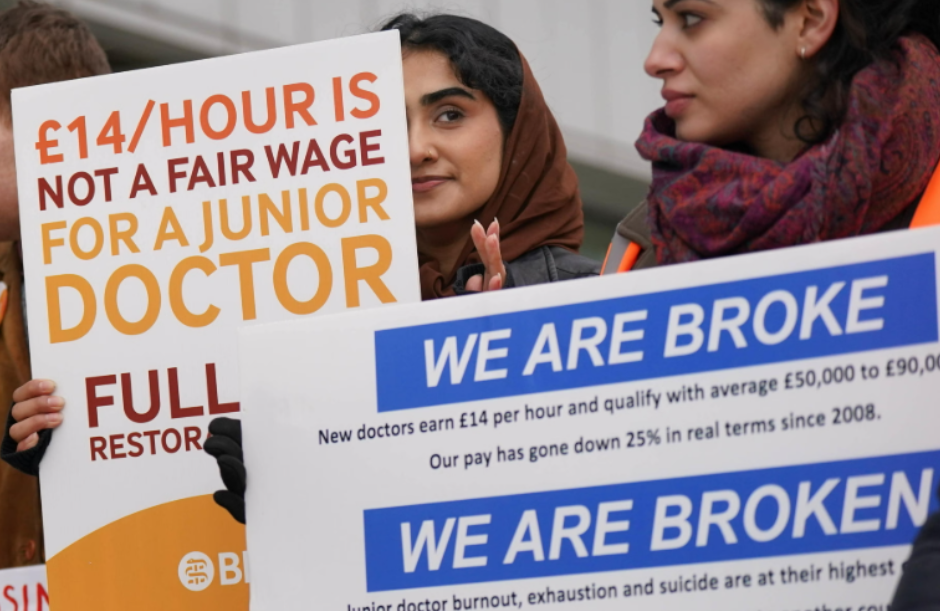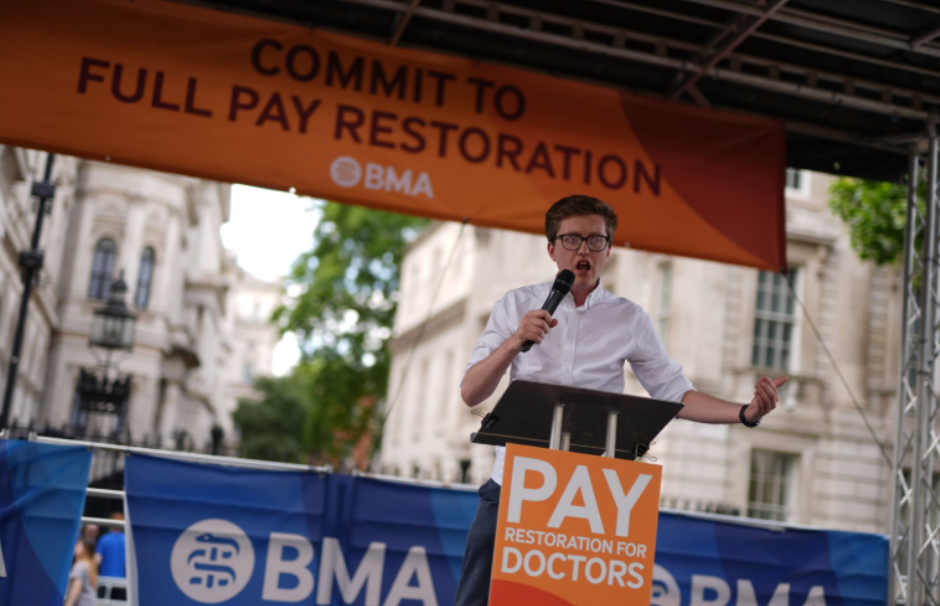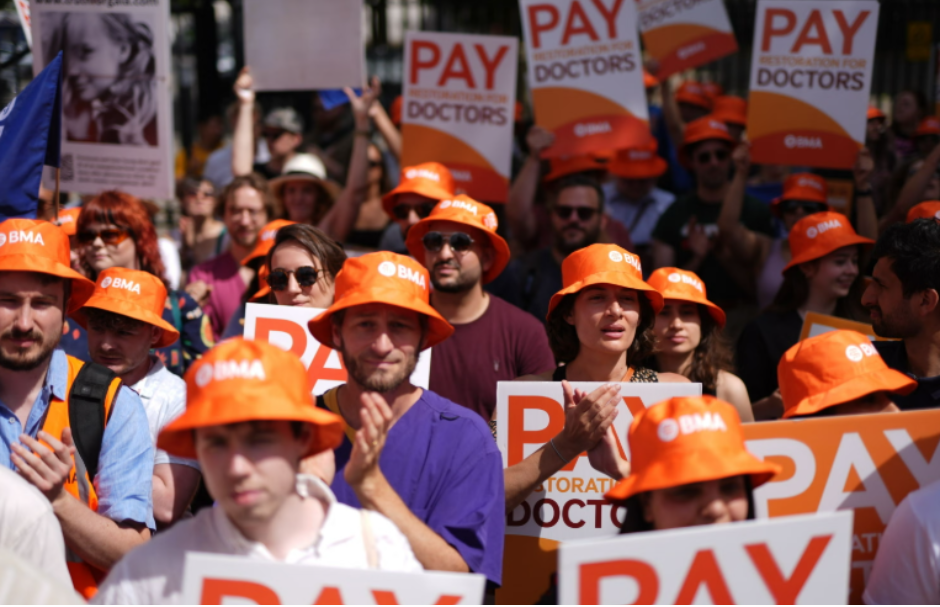With nearly 50,000 resident doctors—previously called junior doctors—set to go on strike for five days from 25 July 2025, it’s necessary to demystify what they currently take home, why they’re insisting on more, and what that does to NHS pay discussions.
What They’re Paid Currently

- Speciality Training: Pay increases to around £73,992 for more advanced residents.
- Basic Pay: Following recent increases, the government estimates average basic pay will be around £54,300 for 2025–26.
- Take Home Pay: Adding in unsocial hours, overtime, geographic weighting, and on-call shifts, most resident doctors take home around a third more than basic pay.
- Foundation Training (FY1–FY2): Foundation salary is between £38,831 and £44,439 per year.
Why They Say Pay Is Too Low

The British Medical Association (BMA) argues that the pay of resident doctors has fallen by some 21% in real terms since 2008, based on the Retail Prices Index (RPI) measure of inflation. A separate Nuffield Trust report, funded independently, estimates a fall of 4–10% since 2010, based on the official Consumer Prices Index (CPI).
Although they have been offered a 22% rise in pay across 2023–25, doctors claim that current offers (5–6% for 2025–26) fall short of restoring earlier living standards. The doctors are now calling for a 29% rise in pay and expect that it will help restore pre-2008 real wages fully.
Why Background Matters

Resident doctors tend to have high levels of student debt, work extended hours, and experience postponed career development. Some come from lower-income backgrounds, further exacerbating the cost burden and pushing for industrial action.
Wider Context: Public Support & NHS Disruption

Public support for strikes has fallen dramatically—from 52% to approximately 26%—as anger increases at long waiting lists for treatment and cancellation of electives. Health leaders threaten service disruption: previous strikes in 2023–24 were said to have led to more than 1.5 million appointments being cancelled and costing the NHS billions.
Some strike-covering consultant doctors took home as much as £3,000 per shift in market-rate emergency cover deals.
What They’re Asking For

• Full restoration on RPI terms, totalling a 29% increase on current basic pay.
• Faster recovery track—doctors believe it will be 2036 before they’re back to where they were pre-2008 at current rates.
Final Thoughts
Resident doctors are already paid more than many NHS staff; Yet, they say that inflation, increased living expenses, and prolonged career advancement have made them financially strained. The strike is not only about financial necessity, but also a demand to be acknowledged for their training, workload, and integral contribution to healthcare provision.
Whether public sentiment holds up to additional strikes is doubtful—but the controversy highlights the difficulty of reconciling financial constraints with the imperative to keep and pay medical talent.
